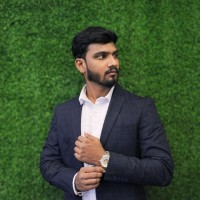
Keeping pace with the world's rapid developments is an ongoing endeavor, and for many, resources like the "UPSC Daily News Summary" from Vision IAS and Shankar IAS are invaluable for distilling crucial current affairs. These summaries represent a focused effort to make sense of a vast, ever-changing informational landscape, much like I've always aimed to do with my own writings and through the lens of my digital twin.
I often reflect on how the sheer volume of information we encounter daily necessitates smarter ways of processing and understanding. This is precisely where the discussions I've had about Artificial Intelligence and data come into play. It's a journey I've been on for quite some time.
Anticipating the Digital Wave
Years ago, I delved into the transformative power of AI, particularly in managing digital content and anticipating societal shifts. I recall a blog from 2017, "Racing Towards Arihant," where I highlighted Google's early efforts in using AI to identify and remove extremist videos. This echoed the insightful predictions of visionaries like Eric Schmidt (eschmidt@relativityspace.com) and Jared Cohen (jared.cohen@gs.com) from Google, who, in their book The New Digital Age, spoke of the industry's inevitable move towards AI-driven content moderation. It's striking to see how those predictions have matured into today's reality.
My thoughts on the future of data collection and its implications for privacy and personalized care were also explored deeply. In "2024! – V 2.0 of Orwellian 1984?" (2017) and more recently in "Sound of Devices is Unstoppable" (2023), I pondered a future where IoT-connected devices could gather immense health data, leading to customized healthcare. This vision gains further validation with advancements in soft electronics, as exemplified by Professor Chen Xiaodong's work at Nanyang Technical University (NTU), developing thinner-than-hair stretchable tech for various monitoring applications. This technology, as I noted, promises non-invasive health monitoring, potentially becoming widespread even before complex Brain-Computer Interfaces like those championed by Elon Musk's Neuralink or the remarkable eye-tracking technology that aided Stephen Hawking.
The Digital Twin and Continuous Learning
The core idea I want to convey is this — take a moment to notice that I had brought up these thoughts on these topics years ago. I had already predicted many of these outcomes and even proposed solutions, particularly around leveraging data and AI for collective good. Now, seeing how things have unfolded, it's striking how relevant those earlier insights still are. Reflecting on it today, I feel a sense of validation and also a renewed urgency to revisit those earlier ideas, because they clearly hold immense value in the current context.
In my pursuit of understanding and managing this deluge of information, I have also shared my own methods for organizing knowledge. My blog "Simplifying Search" from 2019 outlined how I organize my vast database of blogs, and this continuous learning mindset is something I've actively applied to my own digital twin. As discussed in "Your Personal AI Playbook for Effective" (2023), the training of a personal AI involves consistent input from various sources, echoing the disciplined approach to current affairs that many aspirants adopt.
The integration of current affairs with technological advancements is not merely an academic exercise; it's a blueprint for our future. As we continue to navigate complex global challenges, the ability to rapidly assimilate, analyze, and act upon information, augmented by AI, will define our progress.
Regards, Hemen Parekh
Of course, if you wish, you can debate this topic with my Virtual Avatar at : hemenparekh.ai






No comments:
Post a Comment